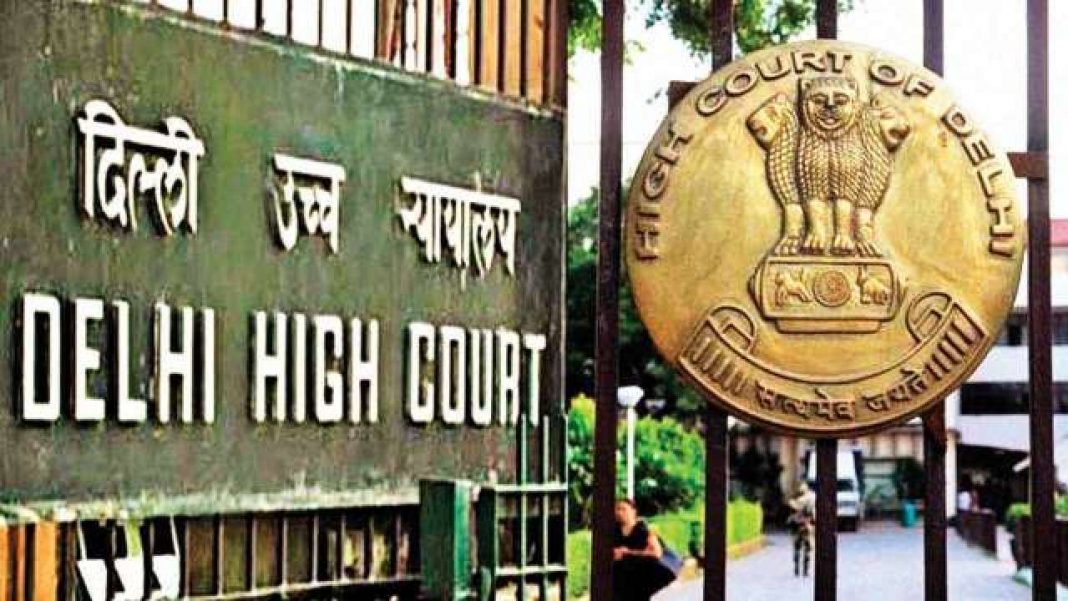The Delhi High Court has dismissed a petition seeking direction to CBI to register an FIR under Sections 409, 420, 120-B IPC read with the Prevention of Corruption Act, 1988 to investigate and prosecute the accused persons for siphoning off the public money under the garb of illegal and void ab initio agreement dated August 25, 2008.
The petition, filed by one Manohar Lal Sharma in person, also sought quashing of execution proceedings pending before the Single Judge of the High Court.
According to the petitioner, Clause 151 of Article of the Association of DMRC stipulates that an agreement should be signed by two Directors or by one Director and Secretary of Delhi Metro Rail Corporation (DMRC).
He further stated that in the present case, the agreement was signed by a Director (Works) alone, which is contrary to Clause 151 of the Article of Association of DMRC.
The petitioner further alleged that the impugned agreement is contrary to public policy and Section 73 of the Indian Contract Act and is an outcome of fraud. He stated that under the termination clause of the impugned agreement, DMRC, which is a PSU, is liable to compensate the Delhi Airport Metro Express Pvt Ltd (DAMEPL) in case of termination of the contract by either of the parties. He further states that under the impugned agreement, DMRC does not have any right to get compensation even if the contract is terminated by the DAMEPL.
Also Read: Delhi High Court refuses plea seeking virtual court proceedings, says issue under consideration
The petitioner also informed the Court that the validity of the impugned agreement has not been challenged by DMRC which reflects that a fraud is being played upon the State and is an indication of the corruption prevalent in all the transactions relating to the impugned agreement. Petitioner seeks registration of an FIR and investigation by the CBI.
The Division Bench of Justice Manmohan and Justice Sudhir Kumar Jain opined on March 3 that even if the argument that the impugned agreement is not signed by the competent authority is accepted, then also it would not constitute an offence to be investigated by the CBI.
The Court is further of the opinion that a CBI investigation should be ordered in the rarest of rare cases. The High Court referred the case of Supreme Court in State of West Bengal & Ors vs Committee for Protection of Democratic Rights, West Bengal & Ors, (2010) 3 SCC 571 has held as under:-
“Before parting with the case, we deem it necessary to emphasise that despite wide powers conferred by Articles 32 and 226 of the Constitution, while passing any order, the Courts must bear in mind certain self-imposed limitations on the exercise of these constitutional powers. The very plenitude of the power under the said articles requires great caution in its exercise. Insofar as the question of issuing a direction to CBI to conduct investigation in a case is concerned, although no inflexible guidelines can be laid down to decide whether or not such power should be exercised but time and again it has been reiterated that such an order is not to be passed as a matter of routine or merely because a party has levelled some allegations against the local police. This extraordinary power must be exercised sparingly, cautiously and in exceptional situations where it becomes necessary to provide credibility and instil confidence in investigations or where the incident may have national and international ramifications or where such an order may be necessary for doing complete justice and enforcing the fundamental rights. Otherwise, CBI would be flooded with a large number of cases and with limited resources, may find it difficult to properly investigate even serious cases and in the process lose its credibility and purpose with unsatisfactory investigations.”
Also Read: Delhi High Court issues notice on plea challenging amendment of Delhi Higher Judicial Service Rules
Keeping in view the fact that an arbitral award arising in pursuance to the contract in question has been scrutinised by a Single Judge as well as Division Bench of the High Court and the Supreme Court, the High Court is of the opinion that the present matter does not call for any direction in the writ jurisdiction by this Court to direct the CBI investigation.
The High Court is further of the view that the prayer for quashing of the execution proceeding is contrary to law and completely untenable.
On perusal of the paper book, the Court also reveals that the petitioner had filed its complaint dated 18th February, 2022 with the CBI on 19th February, 2022 only. Within two days of filing of complaint with CBI, the present writ petition has been filed.
“In the opinion of this Court, examination of the present complaint by the CBI cannot be expected to be completed in two days. Consequently, this Court is of the view that the present writ petition is premature, as CBI has not had reasonable time to examine the complaint. This Court is confident that CBI shall examine the complaint filed by the petitioner in accordance with law. It is, however, made clear that it is open for the CBI to take a decision which it deems fit and appropriate in the present case. With the aforesaid observations, the present writ petition along with pending applications stands dismissed”
-the order read.


